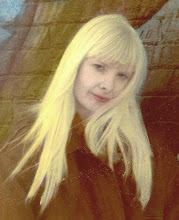
John Franklin Candy (October 31, 1950 – March 4, 1994):
John Candy was a Canadian actor and comedian. He rose to fame as a member of the Toronto, Ontario branch of The Second City, its related Second City Television series, and in his role in comedy films such as Stripes, Splash, Cool Runnings, The Great Outdoors, and Uncle Buck. One of his most renowned onscreen performances was that of Del Griffith, the loquacious, homeless shower curtain ring salesman in the John Hughes comedy Planes, Trains and Automobiles.

Candy was born in Newmarket, Ontario, the son of Evangeline (née Aker) and Sidney James Candy. He was raised in the working-class Roman Catholic family.[3] Candy attended Neil McNeil High School, an all-boys Catholic school in Toronto, where he played Canadian football.
Candy's first movie role was a small uncredited appearance in the 1973 film Class of '44. He appeared in several other low-budget films in the 1970s. In 1976, Candy played a supporting role (with Rick Moranis) on Peter Gzowski's short-lived, late-night television talk show, Ninety Minutes Live. That same year, as a member of Toronto's branch of The Second City,[4] he gained wide North American popularity, which grew when he became a cast member on the influential Toronto-based comedy-variety show Second City Television (SCTV). NBC picked the show up in 1981 and it quickly became a fan favorite.
Among Candy's memorable characterizations for SCTV were unscrupulous street-beat TV personality Johnny LaRue, 3-D horror auteur Doctor Tongue, sycophantic and easily amused talk-show sidekick William B. Williams, and Melonville's corrupt Mayor Tommy Shanks. Other characters included Morgy, from Morgy and Shoo, the cheerful Leutonian clarinetist Yosh Shmenge, who was half of the Happy Wanderers and the subject of the mockumentary The Last Polka, folksy fishin' musician Gil Fisher, handsome if accent-challenged TV actor Steve Roman, hapless children's entertainer Mr. Messenger, corrupt soap opera doctor William Wainwright, and smut merchant Harry, "the Guy With the Snake on His Face".

Mimicry was one of Candy's talents, which he used often at SCTV. Celebrities impersonated by Candy include Jerry Mathers, Divine (Glen Milstead), Orson Welles, Julia Child, Richard Burton, Darryl Sittler, Luciano Pavarotti, Jimmy the Greek, Andrew Sarris, Tip O'Neill, Don Rickles, Curly Howard, Merlin Olsen, Jackie Gleason, Tom Selleck, Gordon Pinsent, Ed Asner, Gertrude Stein, Morgy Kneele, Doug McGrath, and Hervé Villechaize.
By 1980, he began a more active film career having appeared as a soldier in Steven Spielberg's big-budget comedy 1941 and had a supporting role as Burton Mercer, "Joliet" Jake's correctional officer in The Blues Brothers. A year later, Candy played the lovable, mild-mannered Army recruit Dewey Oxberger in 1981's Stripes, one of the most successful films of the year. In the next two years, Candy did a small cameo in Harold Ramis' National Lampoon's Vacation, appeared on Saturday Night Live twice (hosting in 1983), while still appearing on SCTV.
In 1983, Candy headlined in the film Going Berserk, and was also approached to play the character of accountant Louis Tully in Ghostbusters (completed and released 1984), but ultimately did not get the role because of his conflicting ideas of how to play the character; the part went instead to Rick Moranis (however, Candy was one of the many celebrities who appeared chanting "Ghostbusters" in Ray Parker, Jr.'s hit "single" for the movie). In 1984, Candy played Tom Hanks' womanizing brother in the hit romantic comedy Splash, considered to be his breakout role.
Throughout the latter half of the 1980s, Candy worked often taking roles in substandard films (even performing the voice of a talking horse in the Bobcat Goldthwait comedy Hot to Trot). Although Candy continued to play supporting roles in films like Spaceballs, he was awarded the opportunity to headline or co-star in such comedy films as Volunteers; Planes, Trains & Automobiles; Brewster's Millions; The Great Outdoors; Armed and Dangerous; Who's Harry Crumb?, Summer Rental and Uncle Buck. He also continued to provide memorable bit roles, including a "weird" disc jockey in the comic musical film Little Shop of Horrors, and a state trooper in the Sesame Street film Follow That Bird.

He also produced and starred in a Saturday morning animated series on NBC entitled Camp Candy in 1989. The show was set in a fictional summer camp run by Candy, featured his two children in supporting roles, and also spawned a brief comic book series published by Marvel Comics' Star Comics imprint.
In the early 1990s, Candy's career went into decline after he appeared in a string of critical and commercial failures, including Nothing But Trouble (for which he was nominated for a Razzie as "worst supporting actress", playing a woman), Delirious, and Once Upon A Crime, although he did appear in major successes such as Rookie of the Year (uncredited), The Rescuers Down Under, Cool Runnings, and Home Alone.
Candy attempted to reinvigorate his acting career by broadening his range and playing more dramatic roles. In 1991, Candy appeared in a light romantic comedy-drama, Only the Lonely which saw him as a Chicago cop torn between his overbearing mother (Maureen O'Hara) and his new girlfriend (Ally Sheedy). The same year and in rare form, Candy played a dramatic role as Dean Andrews Jr., a shady Southern lawyer in Oliver Stone's JFK.
In 1991, Bruce McNall, Wayne Gretzky, and Candy became co-owners of the Canadian Football League's Toronto Argonauts. The celebrity ownership group attracted a lot of attention in Canada and the team spent a significant amount of money, even signing some highly touted National Football League players. John and the Argonauts took home the 1991 Grey Cup beating Calgary 36-21 in the final.

Candy struggled with obesity throughout his adult life. During the late 1980s and early 1990s he gained a large amount of additional weight, though he had been making a significant effort to improve his overall health in the last year of his life; he had quit smoking and had begun losing some weight. However, while on location in Durango, Mexico, filming Wagons East!, Candy died in his sleep from a heart attack on March 4, 1994 at the age of 43. His funeral was held at St. Martin of Tours Church. Candy was interred in the mausoleum at Holy Cross Cemetery in Culver City, California.
On March 18, 1994, a special memorial service for Candy, produced by his former improv troupe The Second City, was broadcast across Canada.[ Following his death, the sign atop comedy club The Laugh Factory honored Candy and fellow comedian Bill Hicks (who had died several days earlier): "Rest in peace; make God laugh."
Wagons East! was released in the summer of 1994, completed using a body double in Candy's place.
Candy's final completed movie was Canadian Bacon, a satirical comedy by Michael Moore that was released the year after Candy's death. Candy played American sheriff Bud Boomer who led the "attack" against Canada.
Candy recorded a voice for the TV film The Magic 7 in the early-1990s. The film remained in production for years due to animation difficulties and production delays, and it was shelved.
Candy was inducted into Canada's Walk of Fame. In May 2006, Candy became one of the first four entertainers ever honoured by Canada Post by being featured on a postage stamp. Blues Brothers 2000 is dedicated to three people, including Candy, who played a supporting role in the original Blues Brothers.
The John Candy Visual Arts Studio at Neil McNeil Catholic High School, in Toronto, Ontario was dedicated in his honour after his death. John Candy, one of the school's most famous alumni, said during one of his annual visits to the school, “My success is simply rooted in the values and discipline and respect for others that I was taught at Neil McNeil.”

A tribute to Candy was hosted by Dan Aykroyd at the 2007 Grey Cup festivities in Toronto in November 2007.
Ween's Chocolate and Cheese album released in 1994 is "dedicated in loving memory to John Candy (1950-1994)".





No comments:
Post a Comment